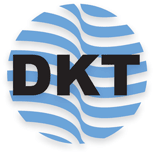Agent Adaptation in an Urban Coastal Scenario: Applying the VIABLE Framework
- 1Climate Service Center Germany (GERICS), Helmholtz‐Zentrum Geesthacht, Hamburg, Germany (shubhankar.sengupta@hzg.de, dmitrii.kovalevskii@hzg.de)
- 2Research Group Climate Change and Security (CLISEC), Institute of Geography, Center for Earth System Research and Sustainability (CEN), Universität Hamburg, Germany (juergen.scheffran@uni-hamburg.de)
An agent-based model (the VIABLE framework) of a coastal city is represented in Netlogo, describing adaptive dynamic agent behavior in a changing system. Rising sea levels and subsequent extreme sea level events incur damages to the city which an “urban planner” agent can mitigate through two adaptation pathways: developing coastal defenses, or as a more extreme measure, relocating vulnerable areas inland. Capital generated by the city can be directed as investments towards these pathways, with the remainder being consumed. The agent’s control variables are thus the amount of capital invested, and the ratio of investments allocated to the two pathways. As the simulation progresses and the system changes with rising sea levels, the agent alters these control variables to optimize its value, resulting in dynamic reactive behavior. Additionally, sea level rise is implemented in various modes, along with extreme sea level events that cause severe short-term damages.
How to cite: Sengupta, S., Scheffran, J., and Kovalevsky, D.: Agent Adaptation in an Urban Coastal Scenario: Applying the VIABLE Framework, 12. Deutsche Klimatagung, online, 15–18 Mar 2021, DKT-12-22, https://doi.org/10.5194/dkt-12-22, 2021.

